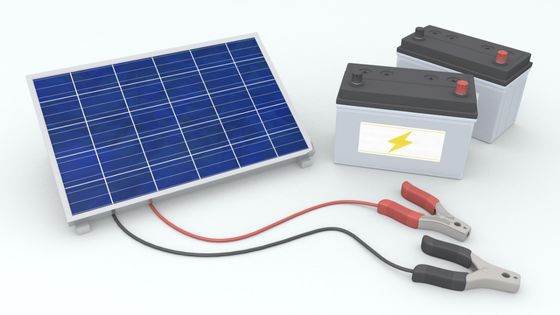The advancement of the world in terms of technology and resources has led to revolutionary innovations. Earlier, solar cells or batteries were rarely used for daily applications. However, considering the cost-effectiveness and versatility of solar batteries, they are highly admired and demanded.


Solar batteries can be considered storage cells of surplus energy generated by solar panels. This stored energy can be used later, like total power cuts or a blackout. The average solar installation in the United States hovers around 20 panels in a residential area to effectively deal with blackout situations.
If you are wondering whether solar panels or cells are a good investment, you have landed on the right page. This article will brief you on everything you need about solar batteries.
Why are solar batteries gaining massive traction?
Recent studies reveal that electricity costs are destined to increase by 19% because of the inflation in energy costs and the current price cap set for October 2022 to April 2023. Considering the increment in electricity costs, one needs an improvised alternative to manage their budget.
Installing solar batteries is a lucrative one-time investment, and the cost of a solar battery and its installation price can be around $200 to $15,000. However, such an installation significantly reduces one’s dependency on National Grid electricity.
In addition, the energy stored in the batteries can later be used on rainy, cloudy, or even at night. Thus, significantly reducing energy costs.
Is investing in solar cells a good idea?
Investing in a solar battery can sometimes be highly intimidating. The upfront costs of a solar battery installation might be high. However, one must also remember that solar batteries are a massively successful alternative to fossil fuels. It considerably reduces carbon footprint and improves the quality of the environment.
Additionally, most batteries are designed with advanced-level technology to work efficiently for around 15-20 years and come with a 10-year warranty. As far as the efficiency of a solar battery is concerned, these batteries have a variety of energy capacities ranging from 1 kilowatt to 10 kilowatts.
Types of solar batteries
There are mainly three types of solar batteries in the market; lithium-ion, saltwater, and lead-acid. However, every situation differs and requires a battery appropriate to the situation. Therefore, one must discuss this with a professional before getting a battery.
Lithium-Ion Battery
This battery is the most commonly found battery in households. It has a higher usable capacity with the ability to handle deep discharges of about 80%. Lithium-ion batteries are lightweight and compact, thus making them more favorable for use.
Saltwater Battery
Solar batteries use the means of an electrolyte to function. In the case of a Li-ion battery, lithium is used as an electrolyte. However, in saltwater batteries, the metal sodium is used. This makes the battery a recyclable option with a good retention capacity.
Lead-Acid Battery
Lead-acid batteries have been in existence since ancient times. It is voluminous in size and is predominantly found in remote or isolated areas where spacing is not a limitation. It has a shorter lifespan than Li-ion batteries and is relatively cheaper.
Conclusion
Solar batteries are tremendously growing in demand due to their environment-friendly nature and the feature of being used in times of emergency. However, one must consider factors like battery lifetime, battery size, energy capacity, roundtrip efficiency, and safety levels of the solar battery to make an informed decision. With the help of the information mentioned above, one can lead an easy path to understanding solar batteries.
















